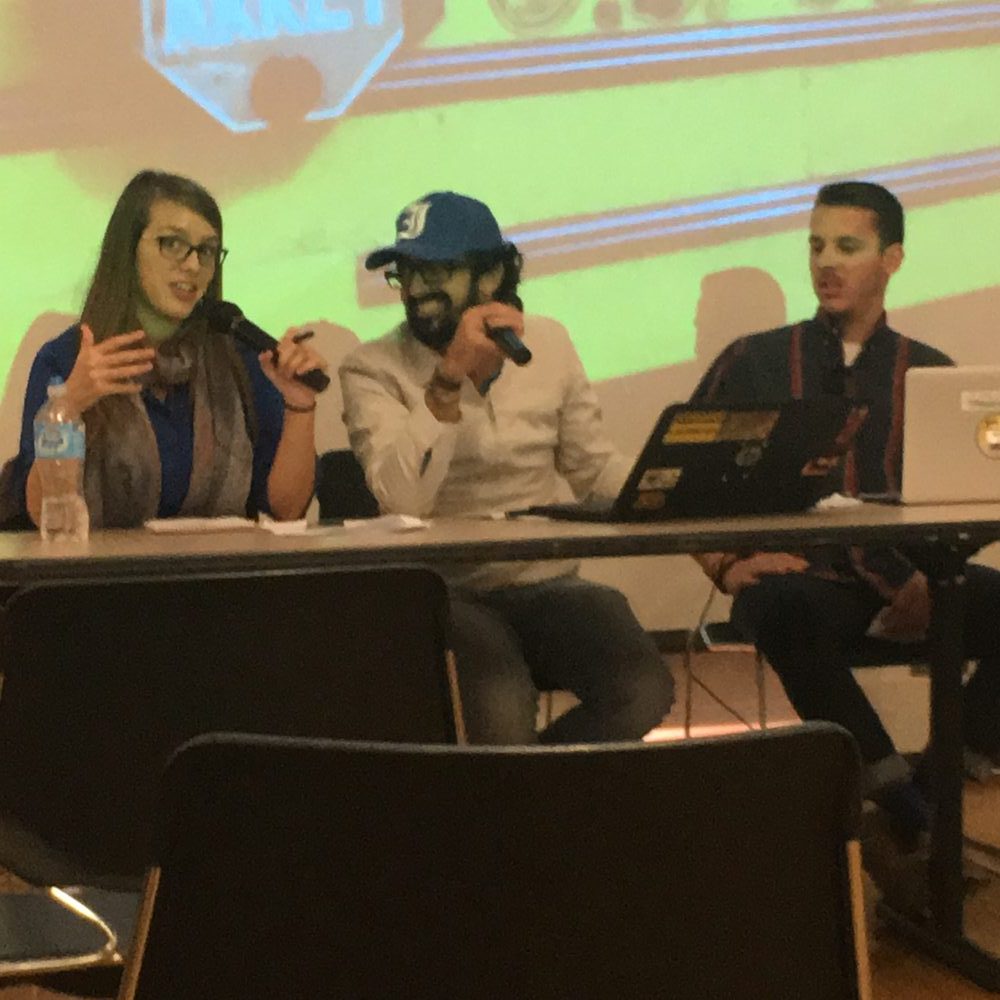On Tuesday, Oct. 3, 2017, the Department of Economics hosted a presentation in the Multicultural Student Services Center on U.S.-Cuban relations.
Planned in partnership with Witness for Peace, a non-profit organization committed to exposing systemic oppression through social change and grassroots solidarity, the keynote speaker was Cuban poet and popular educator, Marcel Luerio Reyes.
Introducing his extended history of U.S.-Cuban relations, Reyes began by reciting two poems from 19th century Cuban-poet and nationalist leader, José Martí. Reyes then listed the important developments in the relationship between the two countries from the 18th Century until today.
“The flow of influences and capital was maintained in both directions,” Reyes said. “From Cubans establishing tobacco factories in Key West, to Americans bringing theProtestant Religion and Baseball to Cuba.”
“Because of their proximity, technology arrived in Cuba from America long before it arrived in England,” Reyes said. “Much of Cuba’s ideals for sovereignty were influenced by US Republican ideals.”
“Afro-Cubans even travelled to America to join them in their War for Independence,”Reyes said.
This mutual influence and aid was short-lived and José Martí gave a premonition to all of Cuba saying that the expansionist policy of the U.S. was something to be cautious about.
“During the Cuban Revolution from the Spanish Colonial Regime,” Reyes said, “an American ship was lost in the crosshairs, inspiring the US to enter the War, and leavingCubans feeling betrayed.”
“We still do not know what really happened to that ship,” Reyes said, “but Cubans understood in that moment that in order to create a free and sovereign nation—by the nation, for the nation—the U.S. could not be trusted and their imperial interests must be dealt with.”
“Our relationship became estranged and eventually all relations were cut off following the Platt Amendment, the Triumph of the Cuban Revolution, and the Blockade,” Reyes said.
“Despite the blockade,” Reyes said, “my small country full of creative people has made important contributions and advancements in public health, education, sports, technology, and more.”
Reyes explained Cuba has a different analysis among human rights such as, the right to education, and free health care. “A heart transplant should never cost a dime,” Reyes said. “When Hurricane Katrina hit Cuba offered to send over a thousand doctors and medical aid.”
The President George W. Bush Administration refused this help, furthering the divide between the two nations.
Although Cuba was isolated for quite some time, U.S.-Cuban relations have been reestablished through the Barack Obama Administration. Reyes believes that a relationship between the U.S. and Cuba is more than possible through two approaches: pedagogical and societal, but warns that, “all these reestablished ties are currently hanging under a question mark with the Trump Administration’s aggressive discourse.”
“Cuba has remained a strong country all throughout our history,” said Reyes. “We will not allow for another president trying to make us get on our knees.” This presentation is the first in a two-part installment; the follow-up conversation, U.S.-Cuba Relations During the Trump Regime, will be held Oct. 19, at 5 p.m. in atrium two of the Memorial Student Union.





